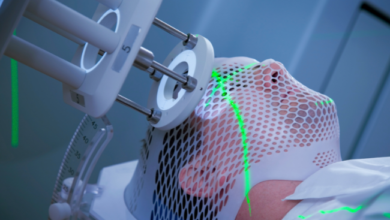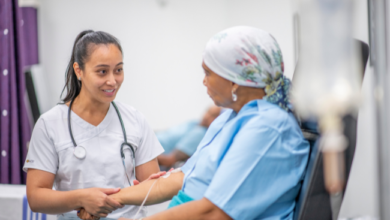Does david belmondo have cancer

Does david belmondo have cancer,David Belmondo is a well-known actor and director who has appeared in numerous movies, TV shows, and theater productions. His talent, charisma, and good looks have made him a beloved figure among his fans around the world. However, rumors have been circulating online that David may be suffering from cancer, which has caused concern and speculation among his followers. In this blog post, we will explore the topic of cancer in general and examine whether there is any evidence to support or refute the claim that David Belmondo has cancer. By doing so, we hope to provide accurate information about this serious disease and raise awareness about its prevention, detection, treatment options as well as debunkdoes david belmondo have cancering any false claims regarding David’s health status.
What is cancer?
Cancer is a term used to describe a group of diseases where abnormal cells divide and grow uncontrollably. These cells can invade nearby tissues and organs, as well as spread throughout the body via the bloodstream or lymphatic system. Cancer can affect anyone at any age, but it is more common in older people.
There are many different types of cancer depending on the type of cell that has become cancerous, including carcinomas, sarcomas, and leukemias. Some cancers are more aggressive than others and have a higher chance of spreading to other parts of the body.
The symptoms of cancer vary depending on the location and stage of the disease. Common symptoms include fatigue, unexplained weight loss, pain or discomfort in certain areas, changes in bowel or bladder habits, persistent coughing or hoarseness.
The causes of cancer are complex and not always fully understood. However, some risk factors for developing cancer include exposure to certain chemicals or substances such as tobacco smoke or asbestos; genetic predisposition; unhealthy lifestyle choices such as poor diet and lack of exercise; infections caused by viruses like HPV or hepatitis B/C.
Treatments for cancer depend on the type and stage of the disease but may include surgery to remove tumors, radiation therapy to kill cancer cells with high-energy beams, chemotherapy using drugs that target rapidly dividing cells among others.
Understanding what is Cancer requires us a deeper understanding about our own bodies’ processes over time which help us find better ways how we should take care ourselves while becoming aware when things go wrong so we can prevent it from happening early on through regular checkups with your healthcare provider
The different types of cancer
When it comes to cancer, there are many different types that can affect the body. Each type of cancer is unique in its nature and symptoms, making it important to understand the differences between them.
One common type of cancer is lung cancer, which occurs when abnormal cells grow uncontrollably in the lungs. This type of cancer often presents with a persistent cough, chest pain, and shortness of breath.
Breast cancer is another well-known form of this disease that affects both men and women. It occurs when abnormal cells grow in breast tissue over time and can present with a lump or thickening in the breast area.
Prostate cancer primarily affects men and occurs when abnormal cells develop in the prostate gland. Symptoms may include difficulty urinating or blood in urine.
Other types of cancers include skin cancer, colon cancer, lymphoma, leukemia and pancreatic among others. Understanding these different types of cancers is crucial for early detection and treatment options available.
The symptoms of cancer
Cancer is a complex disease that can present itself in many different ways. The symptoms of cancer vary depending on the type, location, and stage of the cancer. Some common symptoms include unexplained weight loss, fatigue, pain, changes in skin texture or color, lumps or growths that are visible or palpable to the touch.
Other signs may be more subtle such as persistent coughing or hoarseness, difficulty swallowing food or liquids, changes in bowel habits like constipation or diarrhea without any apparent cause. Additionally, some cancers may not have any symptoms at all until they have progressed to later stages.
Early detection is key when it comes to treating cancer successfully. It’s important to pay attention to your body and report any unusual changes to your doctor right away. Regular check-ups with your healthcare provider can also help detect potential issues early on before they become more serious.
Knowing the common symptoms of cancer can help you stay vigilant about your health and take action if needed. Remember that while these symptoms can be indicative of cancer; they don’t always mean you have it- only a medical professional can provide an accurate diagnosis through proper testing and evaluation

The causes of cancer
Cancer is a complex disease and its causes are not fully understood. However, there are certain factors that increase the risk of developing cancer. One of the most common causes of cancer is genetic mutations. These mutations can be inherited or can occur spontaneously during cell division.
Another major cause of cancer is exposure to carcinogens such as tobacco smoke, radiation, chemicals in food and water, and air pollution. Lifestyle factors such as poor diet, lack of physical activity, obesity and excessive alcohol consumption can also contribute to the development of cancer.
Certain viruses like HPV (human papillomavirus) and HBV (hepatitis B virus) have been shown to increase the risk for specific types of cancers like cervical and liver cancers respectively.
Additionally, age plays a role in developing cancer since our cells accumulate damage over time making them more susceptible to becoming cancerous.
It’s important to remember that while some risks for developing cancer may be unavoidable such as aging or genetics – many others including lifestyle choices are within our control. By managing controllable risk factors we can reduce our chances of getting this disease which affects millions each year.
The treatments for cancer
Cancer treatments can vary depending on the type and stage of cancer. For some types of cancer, surgery may be the best option to remove tumors or affected areas. Chemotherapy is another common treatment where drugs are used to kill cancer cells throughout the body.
Radiation therapy is also commonly used to treat cancer by using high-energy radiation beams to target and kill cancer cells in specific areas. Immunotherapy is a newer form of treatment that uses a patient’s own immune system to fight against cancer cells.
Targeted therapy involves medications that specifically target certain molecules within cancer cells, stopping their growth and spread. Hormone therapy may also be an option for cancers that are driven by hormones like breast or prostate cancers.
Clinical trials may offer experimental treatments not yet available to the general public, giving patients access to promising new therapies. It’s important for patients with cancer to work closely with their healthcare team in determining which treatment options are right for them based on their individual situation and needs.
The prognosis for cancer
When it comes to cancer, the prognosis varies greatly depending on a number of factors. These can include the type and stage of the cancer, as well as the patient’s overall health and age.
For some cancers, such as certain types of skin cancer or early-stage prostate cancer, the prognosis can be quite good with proper treatment. In fact, many people are able to survive these types of cancers with few long-term side effects.
However, for other types of cancer such as pancreatic or lung cancer, the prognosis may not be as positive. These types of cancers tend to have lower survival rates and fewer treatment options available.
It is important to remember that every case is unique and there is no one-size-fits-all answer when it comes to predicting a patient’s outcome. However, there are many resources available for patients and their families who are seeking information about their prognosis including support groups and medical professionals who specialize in oncology.
Ultimately, while a diagnosis of cancer can be scary and overwhelming, it is important for patients to stay informed about their condition so they can make informed decisions regarding their care.
Conclusion
To wrap it up, cancer is a complex and devastating disease that affects millions of people worldwide. It can manifest in various forms, each with its specific symptoms and causes. As we have seen in this article, early detection can make all the difference when it comes to treating cancer effectively. While we cannot predict David Belmondo’s diagnosis or prognosis, we hope that this article has shed some light on what cancer entails.
If you or someone you know is experiencing any concerning symptoms related to cancer, do not hesitate to seek medical attention immediately. Early intervention could be the key to successful treatment and recovery from th



